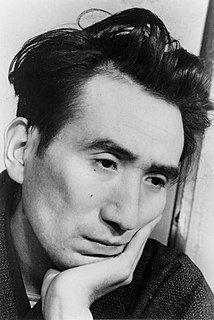A Quote by Miguel de Unamuno
Man is said to be a reasoning animal. I do not know why he has not been defined as an affective or feeling animal. Perhaps that which differentiates him from other animals is feeling rather than reason. More often I have seen a cat reason than laugh or weep. Perhaps it weeps or laughs inwardly - but then perhaps, also inwardly, the crab resolves equations of the second degree.
Related Quotes
Feeling different, feeling alienated, feeling persecuted, feeling that the only way to deal with the world is to laugh - because if you don't laugh you're going to cry and never stop crying - that's probably what's responsible for the Jews having developed such a great sense of humor. The people who had the greatest reason to weep, learned more than anyone else how to laugh.
Mother, recently I have discovered the one way in which human beings differ completely from other animals. Man has, I know, language, knowledge, principles, and social order, but don't all the other animals have them too, granted the difference of degree? Perhaps the animals even have religions. Man boasts of being the lord of all creation, but it would seem as if essentially he does not differ in the least from other animals. But, Mother, there was one way I thought of. Perhaps you won't understand. It's a faculty absolutely unique to man - having secrets. Can you see what I mean?
And why are you so firmly, so triumphantly, convinced that only the normal and the positive--in other words, only what is conducive to welfare--is for the advantage of man? Is not reason in error as regards advantage? Does not man, perhaps, love something besides well-being? Perhaps he is just as fond of suffering? Perhaps suffering is just as great a benefit to him as well-being? Man is sometimes extraordinarily, passionately, in love with suffering, and that is a fact.
What else is it that should trace the insuperable line? Is it the faculty of reason or perhaps the faculty of discourse? But a full-grown horse or dog is beyond comparison a more rational, as well as more conversable animal, than an infant of a day or a week or even a month old. But suppose they were otherwise, what would it avail? The question is not, Can they reason?, nor Can they talk? but, Can they suffer? Why should the law refuse its protection to any sensitive being? The time will come when humanity will extend its mantle over everything which breathes.
If we are defined by reason and morality, then reason and morality must define our choices, even when animals are concerned. When people say, for example, that they like their veal or hot dogs too much to ever give them up, and yeah it's sad about the farms but that's just the way it is, reason hears in that the voice of gluttony. We can say that what makes a human being human is precisely the ability to understand that the suffering of an animal is more important than the taste of a treat.






































